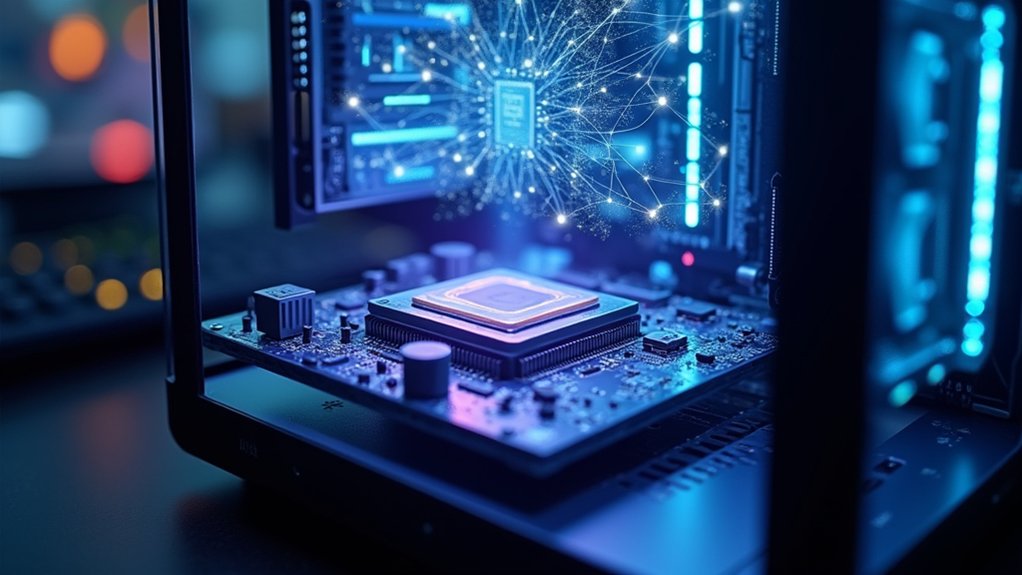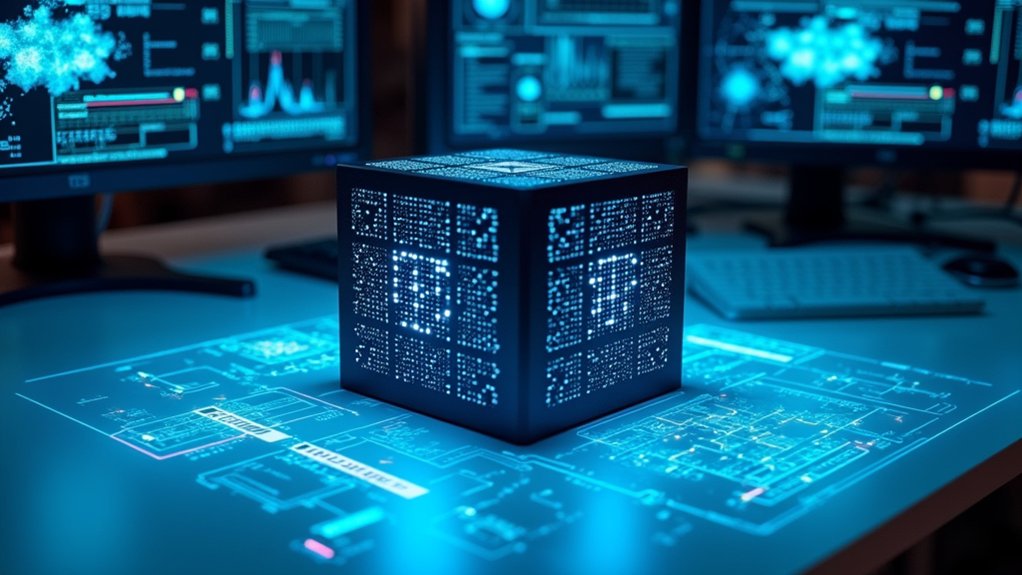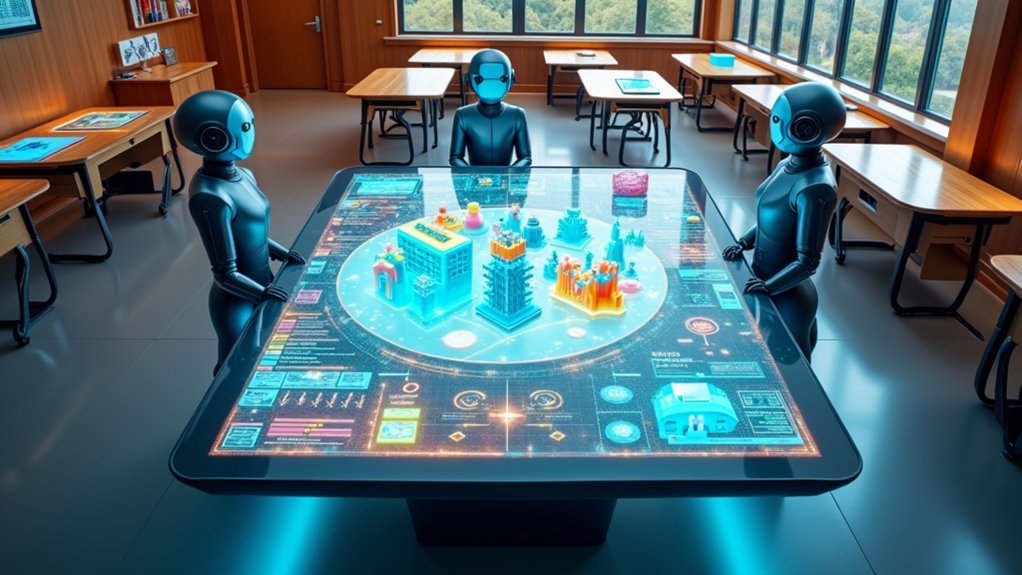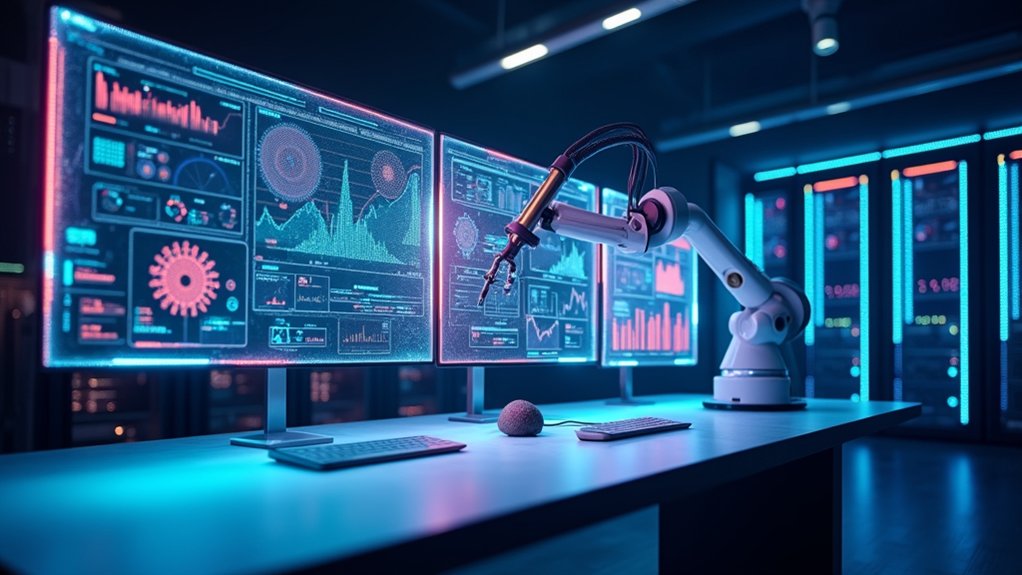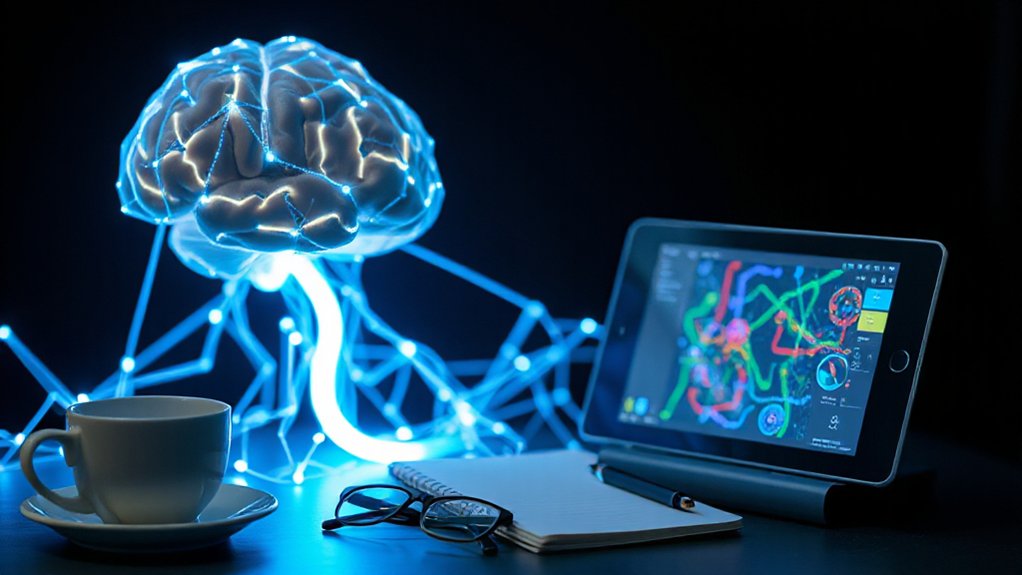An AI PC is a computer specially designed to run artificial intelligence programs without needing constant internet connection. These machines have standard components plus Neural Processing Units (NPUs) that handle AI tasks efficiently. They offer at least 40 TOPS of performance and require large RAM capacity for running complex models locally. AI PCs provide improved privacy, faster processing, and enhanced experiences in everyday activities like digital assistants and creative tools. The right hardware combination determines how well these smart computers will perform.

The world of computers is changing fast with a new kind of machine hitting store shelves: the AI PC. These computers are specially designed to handle artificial intelligence tasks right on your device, without always needing to connect to the internet. They come with three main processors: a CPU for regular computing tasks, a GPU for graphics, and a special NPU (neural processing unit) that's built specifically for AI work.
AI PCs stand out because they can run complex AI programs locally. This means faster performance, better privacy, and less dependence on cloud services. The NPU is what makes this possible – it's engineered to handle AI calculations efficiently, saving battery life and improving speed for AI tasks. Similar to AI as a Service, these computers enable organizations to leverage artificial intelligence without significant infrastructure investments.
NPUs revolutionize personal computing by bringing AI power directly to your device, enhancing privacy while reducing cloud dependence.
Performance for these machines is measured in TOPS (Tera Operations Per Second), with experts suggesting at least 40 TOPS for good AI performance. Other important features include large RAM capacity to handle AI models and fast storage to load these models quickly. For optimal AI workloads, it's recommended to have at least 32GB of system memory to efficiently process data while training models.
Users can expect AI PCs to enhance many everyday activities. They'll power smarter digital assistants, boost creative tools like photo and video editors, improve gaming with AI upscaling, and offer better security features. They can also learn user preferences over time, creating more personalized experiences. Intel's Core Ultra processors serve as the foundation for optimal AI PC performance in the current market.
Compared to traditional computers, AI PCs offer several advantages. They process AI workloads more efficiently, reduce waiting time for AI features, extend battery life when running AI programs, and perform better with new AI software. They're also built with future AI technologies in mind.
When looking at AI PCs, it's important to evaluate how well the hardware components work together. The balance between CPU, GPU, and NPU matters, as does having enough RAM and storage. Power management is another factor since AI tasks can be demanding.
Though they're new to the market now, AI PCs represent where computing is headed – bringing advanced AI capabilities directly to users' desks and laps.
Frequently Asked Questions
How Much More Expensive Are AI PCS Than Regular Computers?
AI PCs are typically 20-30% more expensive than regular computers.
Entry-level AI laptops start around $800-1000, while regular laptops begin at $500-700.
The price gap comes from specialized components like Neural Processing Units (NPUs), which add $50-150 to the cost.
High-end AI PCs can reach $2000+, compared to $1500+ for standard high-end models.
Experts predict this price difference will shrink as the technology becomes mainstream.
Can Existing Computers Be Upgraded to Become AI PCS?
Most current computers can't be fully upgraded to AI PCs.
Many lack dedicated NPUs, which are essential for AI acceleration. While RAM and storage upgrades are possible, older motherboards and CPUs typically don't support AI features.
Some alternatives exist, including external AI accelerators and cloud-based AI services.
Graphics card upgrades can help, but won't match the capabilities of systems designed specifically for AI tasks.
What Tasks Benefit Most From an AI PC?
Tasks that benefit most from AI PCs include content creation with image and video editing, and language translation.
Data analysis sees major improvements with faster processing of large datasets and real-time visualization.
AI PCs excel at productivity tasks like meeting transcription and email management.
Security operations benefit from enhanced threat detection.
Resource-intensive tasks that require on-device processing show the greatest performance gains.
Are AI PCS Necessary for Basic AI Applications?
AI PCs aren't necessary for basic AI applications. Cloud-based AI services work on any device with internet access.
Standard computers, smartphones, and tablets can handle everyday AI tasks like voice assistants and simple image processing. Web browsers provide access to most consumer AI tools.
Basic AI features are already built into existing operating systems. For simple AI needs, specialized AI hardware offers little advantage over regular devices.
How Much Power Do AI PCS Consume Compared to Standard Computers?
AI PCs typically consume more power than standard computers. While regular PCs use about 65-250 watts, AI PCs can exceed 300 watts.
The difference comes from their specialized hardware like NPUs and GPUs. However, AI PCs are more efficient for AI tasks specifically, with NPUs being 2-10 times more energy-efficient than GPUs for these workloads.
Their power consumption varies based on the specific task being performed.
